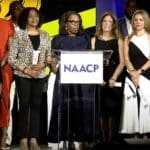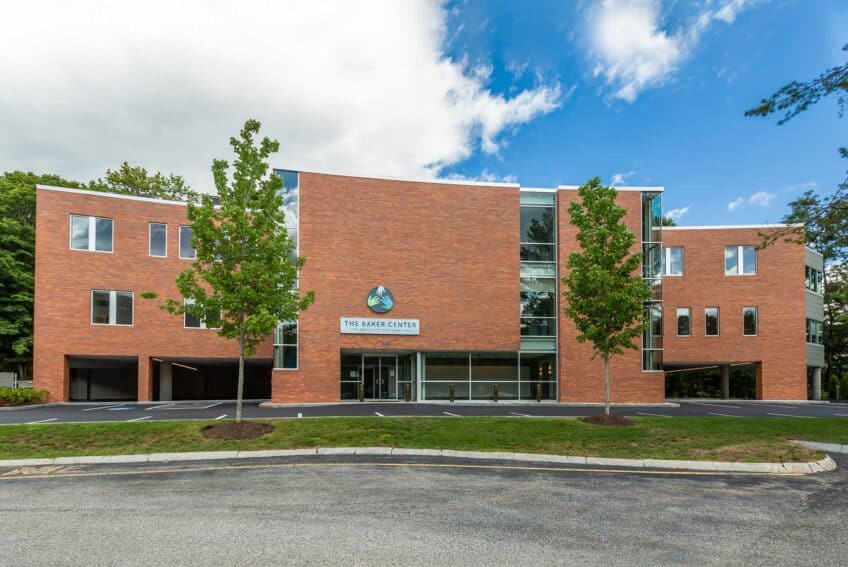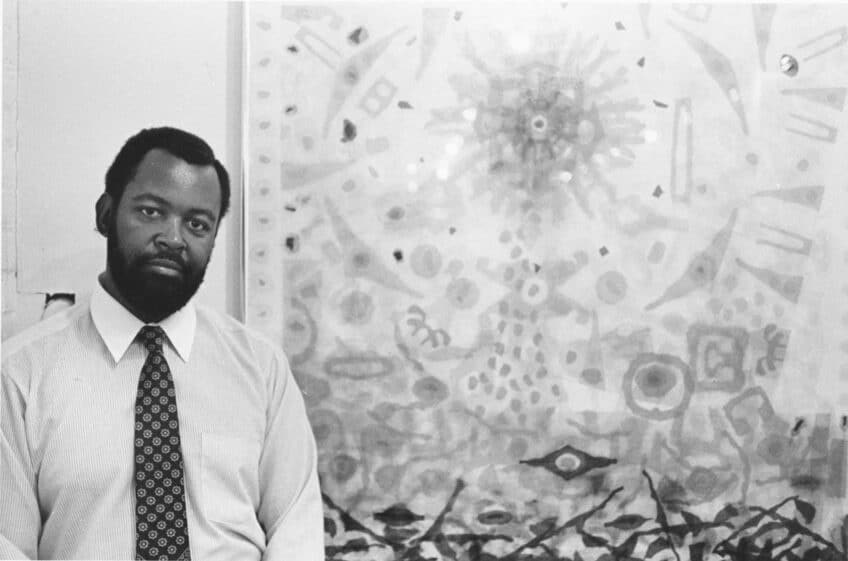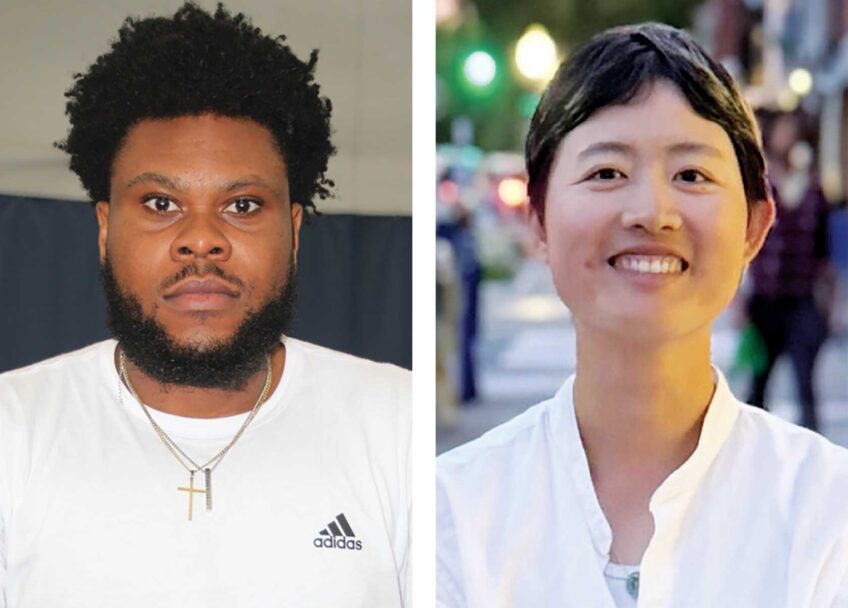Black firms tackle fourth largest hotel project in Boston
Diversity participation criteria may set national precedent
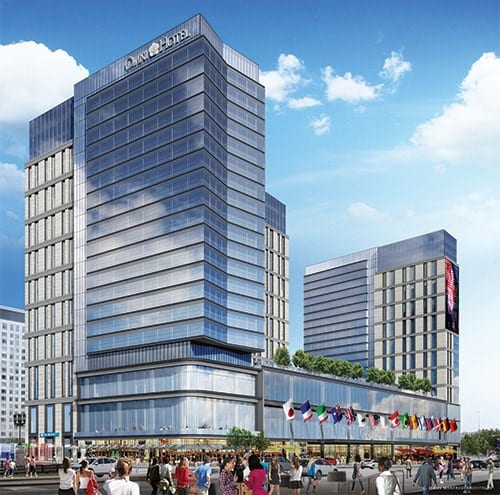
A development expected to become the fourth largest hotel in Boston and the rest of the state is slated for development by a team with significant minority involvement.
The $550 million, 1,054-room hotel will be built on Summer and D Streets in South Boston’s Seaport District, and situated across from the Boston Convention and Exposition Center. The facility is intended to fulfill BCEC’s convention, event operations and meeting needs as well as host local residents with expected completion in 2021. Massachusetts Port Authority, which owns the land, selected a collaboration between Dallas-based Omni Resorts and Hotels and New Boston Hospitality, LLC as developers.
Massport’s request for proposals established minority participation as one of four equally-weighted priorities that guided the review and selection process. Kenn Turner, Massport’s director of diversity and inclusion and compliance said that to his knowledge, this is the first time any agency in the city, state or country has inserted such strong language around diversity.
“Across the country, no one has done this,” Turner told the Banner. ““If you truly wanted to be competitive [in this request for proposals], you had to have a comprehensive diversity program, soup to nuts, across all aspects of the program.”
While minorities more often are engaged in construction work, the RFP also called for inclusion in ownership, architecture, design and management operations, Turner said. The requirement was successful: Minority leadership is present in every step of the project. This includes development, construction, architectural design and investing. For the project’s general contractor, developers secured Janey Construction in a joint venture with Winchester-based John Moriarty & Associates. The architectural design work was done by Stull & Lee in collaboration with Moody Nolan and Elkus Manfredi Architects, with the late Howard Elkus leading the team.
Stull & Lee is known as “the most distinguished black architectural firm in the city,” according to Richard Taylor, managing partner at The Taylor Smith Group.
The Taylor Smith Group, a Boston-based company, is one of several partner firms in the New Boston Hospitality, LLC. Spot On Ventures’ Robin Brown joins as well, bringing hotel experience from his stint as co-developer on the Mandarin Oriental Boston hotel and more than a decade as general manager of Boston’s Four Seasons Hotel. New Boston Hospitality also includes The Davis Cos., which have experience with projects possessing complex funding.
More than 25 local minority investors have bought into the project as well. Included on the investor list are attorneys Flash Wiley and Wayne Budd, Jacqui Budd, a philanthropist, Bennie Wiley, a former management consultant; Charles Stith, Boston University professor; John Jenkins, former state Department of Transportation chair; and William “Mo” Cowan of Mintz Levin.
New opportunities
Historically, minority-owned businesses have received fewer resources and opportunities, limiting their ability to grow and then take on larger projects. For these minority firms and other participants involved, the Seaport hotel development could open doors to new opportunities. Richard Taylor said that while he has had longtime interest in undertaking hospitality projects, when it comes to winning bids, he has found himself caught in a chicken-and-egg situation: He cannot enter the hospitality market without prior experience in the hospitality market. Developing Massport’s Seaport district hotel gives him the needed chance to expand his portfolio.
“There is no way to get in without [an opportunity like Seaport hotel,]” Taylor said. “You qualify if you have hotel experience. But if you never have a chance to get hotel experience, how can you qualify?”
The hotel also will be the first property in the Innovation District with minority ownership, Taylor said. Massport will provide a 90-year ground lease of the two-acre site, in exchange for $100 million and a share of the project’s revenue.
“Hotels, office buildings, retail opportunities — nobody owns anything down there,” Taylor said. “This is a game changer in that respect.”
New model
While many agencies may say they value diversity, Massport stands out by assigning metrics. In its hotel request for proposal, bidders were judged based on an assessment of their ability to perform the work, financial capability, program quality and level of diverse business participation, with each criteria worth 25 points. The result: low or no levels of minority participation immediately set bidders at a disadvantage, thus spurring them to compete for greater levels of inclusion.
Taylor credits the strict language of the RFP with ensuring that minority engagement was more than tokenism and lip service.
“Minority entrepreneurs are optimistic, but without that [RFP] language, we would not be in that deal,” he said. “This is great example of how the public sector, dealing with public property, can enhance the opportunity for the minority businesses to participate.”
Turner described the language as cutting edge and sector-leading, and said it was not the only part of the project to break tradition. In another first, Massport’s head of diversity was included among the four-member voting team selecting among project bidders.
To attain significant diversity on the project, Massport had to fight against a prevailing perception that Boston is unfriendly to minorities and women, which dampens diverse businesses’ interest in the city. One method for addressing this was to engage Ernest Green of AFIG Funds as a consultant. Among other achievements, Green has been recognized as one of Black Enterprise’s 2006 “75 most powerful blacks on Wall Street.” Especially valuable to the project, Turner said, was Green’s ability to reach out to an extensive nationwide network of black leaders and convey the message that Massport officials were serious about the diversity and an inclusive bidding process.
Six teams competed for the contract. They included a collaboration between Capstone Development —Washington hotel development company with black leadership — and Fallon Co., as well as a collaboration between Boston-based Accordia Partners, LLC and a Texas hotel developer. Two teams presented assemblages of minority and female investors.
Precedent set
The hotel project paves the way for use of similarly clear diversity language in the future, by demonstrating that the requirement usefully increases competition and does not deter bidders, Taylor said.
“You must imagine that when this kind of language was originally announced, there were people who’d say, ‘Oh it’ll chill the market, people will not participate,’ ” he said. “[But] it’s proven to be project language that enhanced opportunity, not killed opportunity.”
Turner said Massport already is using the hotel RFP language as a model for other major RFPs such as that for the Maritime Marine Terminal, with wording tweaked to suit project specifics. He said that while he cannot guarantee the same specific approach to project diversity, it will remain emphasized in future RFPs.
“This is not a one-off,” Turner said. “This is how we’re now going to operate an entity. …The spirit and intent will be there each and every time we have a new RFP that goes out on a project of any significance.”
The hotel
All financing is in place, Taylor said, with a significant level of funding coming from Omni, as well as placement from individual investors. When completed, the hotel will include two 20-story towers. There will be 120,000 square feet of event and meeting space. Features include pools and a 25,000 square foot main ballroom, as well as an 8,500 square foot spa and 40,000 square feet of retail and restaurant space. An underground tunnel connects the hotel to the Boston Convention and Exposition Center. Construction is expected to begin in 2018.

